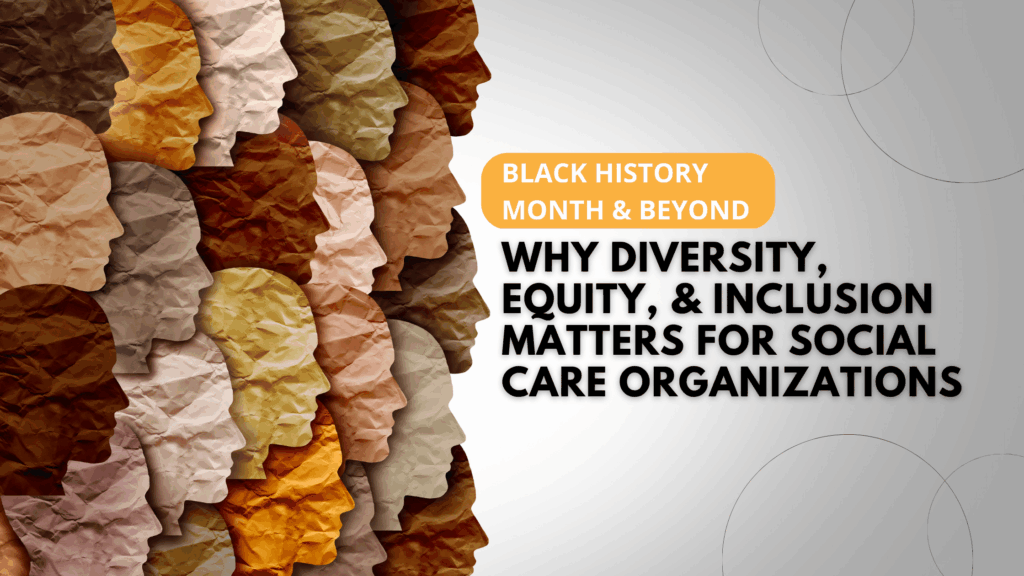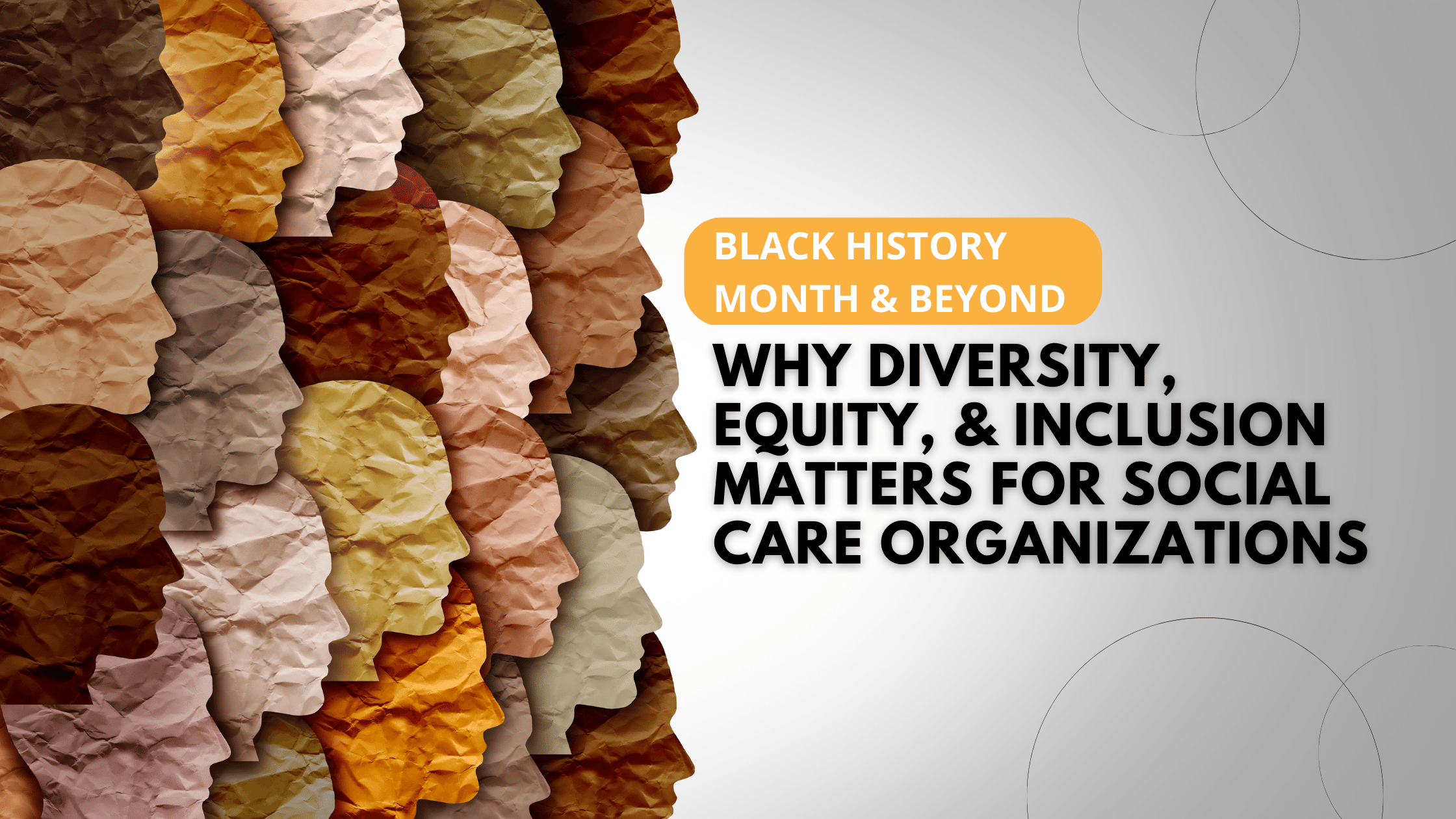
Black History Month is a special time for us to recognize the countless contributions made by African Americans and take a moment to reflect inward on whether our actions honor their history respectfully. As a nonprofit people-serving organization, we encourage you to take a moment to consider the importance of diversity, equity, and inclusion within your team so we can continue making strides in the social care space. Here are a few reasons why diversity, equity, and inclusion are so important for our field during Black History Month and beyond.
Diverse Teams Bring Unique Perspectives
For some organizations, simply doing what is right may be enough to spur action. Others may be moved by data showing that diversity can boost the quality of decision-making and that a diverse workplace can encourage people to be “more creative, more diligent, and harder-working.” Studies have also shown that a more diverse staff can foster enhanced innovation. And when board members, employees, donors, and others who shape the values and activities of a nonprofit come from a wide array of backgrounds, they bring unique perspectives that influence how the nonprofit approaches its mission in more inclusive and innovative ways.
Equity Makes Space for Positive Outcomes to Flourish
SC Thrive stands with others for equity and justice and in denouncing racism, intolerance, and exclusion. Yet taking a stand is not enough. We, along with many other charitable nonprofits, have been on a path of exploration to identify how to build the core values of diversity, equity, and inclusion into all our nonprofit’s operations, as well as model those values as we advance our mission.
We believe that embracing diversity, equity, and inclusion as organizational values is a way to intentionally make space for positive outcomes to flourish, whether in direct services or in the nonprofit capacity building or public policy spheres.
Inclusion Encourages Honest Internal Dialogue
It’s important for service providers to examine internal biases and adopt practices that promote diversity, equity, and inclusion in their work, in their employment practices, in their board rooms, and in their communications. We’re starting with an honest internal dialogue that encourages our staff and board members to reflect, listen to each other, and learn from one another’s experiences. We’re also engaged in dialogue with partner agencies to explore how our members can best advance this work throughout the sector. We have learned from other nonprofits how they incorporate these values while advancing their missions, and we’re eager to learn more.
While February is Black History Month, it is clear that embracing our differences and creating inclusive working environments year-round allows everyone to thrive and reach their greatest potential.
